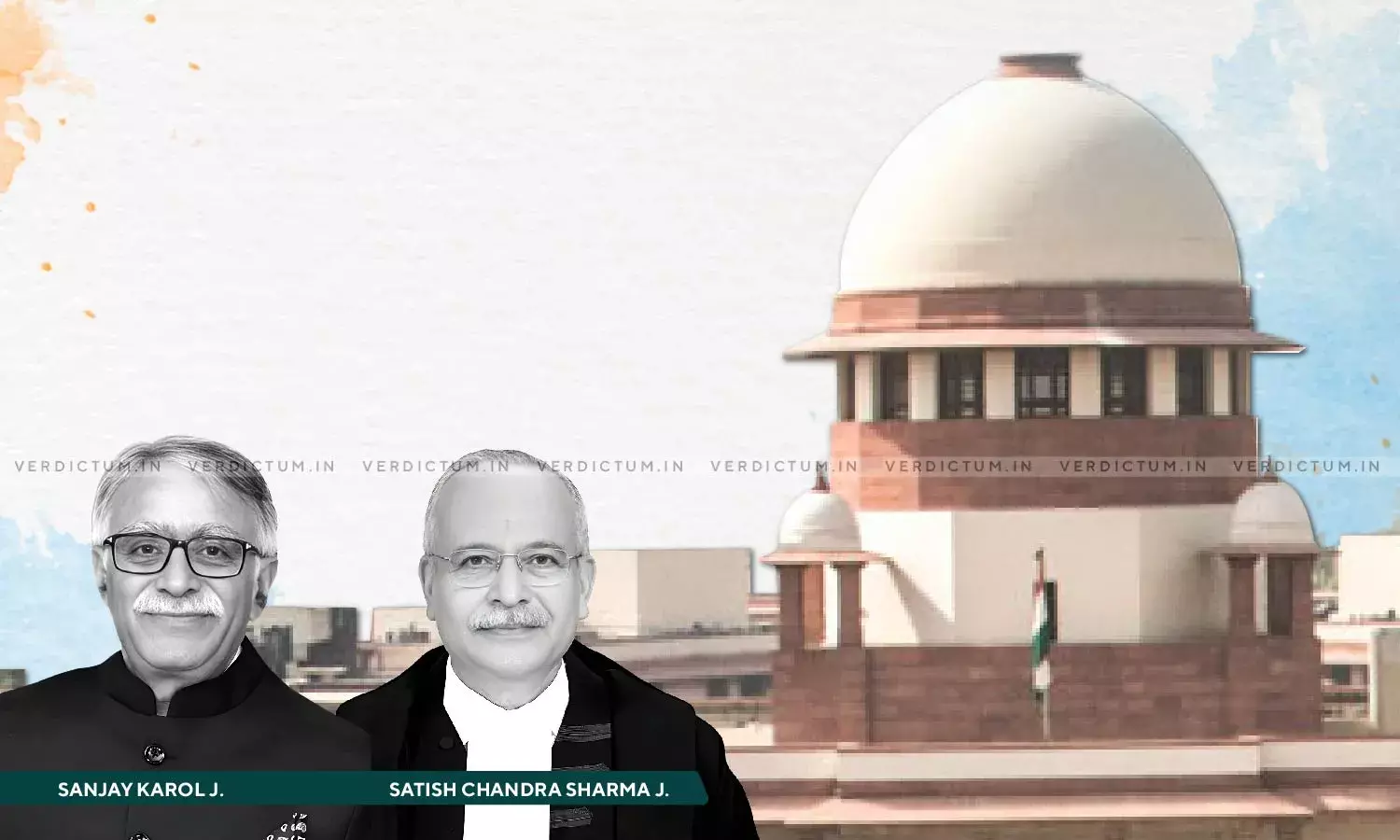"Entitled To Family Pension Under Railway Rules": Supreme Court Grants Relief To Widow Of Deceased Temporary Employee Of Eastern Indian Railways
The Court said that denying pension benefits for falling short of the 10-year qualifying service by a few months is not in harmony with the legislative intent of the Railway Pension Rules and Indian Railway Establishment Manual.

The Supreme Court has held that the widow of a deceased railway employee is entitled to family pension under the Railway Services (Pension) Rules, 1993, despite the fact that her husband was a substitute employee who died after serving for over 9 years. The Court found that the denial of benefits on the ground that the deceased had not completed 10 years of qualifying service was unjustified.
A Bench of Justice Sanjay Karol and Justice Satish Chandra Sharma observed, “Rule 75 of Railway Pension Rules, 1993, makes it further clear that the qualifying service for a temporary railway servant to be entitled for the grant of benefit of family pension is a continuous service of one year… the denial of family pension accrued to the Appellant is unjustifiable.”
The Court added, “We find that the argument canvassed by the Respondents in depriving the Appellant of family pension from her deceased husband for not completing 10 years of qualifying service by falling short of hardly 3 months, is not in congruence with the legislative intent of the Indian Railway Establishment Manual & the Railway Pension Rules, 1993.”
Advocate Brijesh Kumar appeared for the Appellant, while Additional Solicitor General S.D. Sanjay represented the Respondents.
Brief Facts
The Appellant was the widow of a substitute Porter appointed by the Indian Railways. Her husband joined in 1986 and was posted as a Guard/Shuntman at Garhara after being medically screened. He served for more than 9 years and 8 months before passing away in harness in 1996.
Following his death, the Appellant was appointed as a Substitute Gangman on compassionate grounds and was later regularised. However, her application for family pension was rejected on the ground that her husband had not completed the 10-year qualifying service and was never regularised during his lifetime.
The Central Administrative Tribunal, Patna Bench, dismissed her application in 2015, and the Patna High Court upheld the dismissal in 2016. Aggrieved by the denial of pension, the Appellant moved the Supreme Court.
Reasoning of the Court
The Court examined the relevant statutory framework, particularly Rule 75 of the Railway Services (Pension) Rules, 1993, which states, “In the event of death in harness of a railway servant who had completed one year of continuous service… the family of the deceased shall be entitled to family pension.”
The Court noted that the deceased had completed over 9 years of continuous service and had cleared his screening and medical fitness. Referring to Rule 1515 of the Indian Railway Establishment Manual, the Bench noted, “Substitutes should be afforded all the rights and privileges as may be admissible to temporary railway servants, from time to time on completion of four months continuous service.”
The Court rejected the Respondents’ technical argument about lack of formal regularisation, and held that Rule 18(3) of the Pension Rules equates the treatment of substitutes with temporary railway servants for pension purposes, and that the deceased railway employee satisfied these conditions.
The Court noted that the Respondents in depriving the Appellant of family pension from her deceased husband for not completing 10 years of qualifying service by falling short of 3 months, was not in congruence with the legislative intent of the Indian Railway Establishment Manual & the Railway Pension Rules, 1993. It added, “The salutary purpose of the rules thereunder is to extend the benefit of family pension to the families of those servants who have served for a considerable strength of time. The present case is not a case of a casual labourer being simply accorded a temporary status, without any scrutiny or examination… It is an admitted factum that the deceased had reached the necessary stage of scrutiny/screening for regularization of the post, and had been carrying out his services, literally till his last breath.”
The Bench observed, “We do not find any reason to reject the claim of the Appellant who is the widow of a person who died while in harness and had served the Respondents for more than nine years…It is not the case of the Respondents that the Appellant was not legally wedded to the deceased or that the deceased employee had not rendered continuous service.”
The Court further held that such a narrow approach defeats the spirit of social welfare legislation, and that the employee, having served with the Railways for a substantial period before dying in harness, could not be excluded from posthumous benefits.
Accordingly, the Court allowed the appeal, setting aside the judgments of the CAT and the High Court, and directed the Union of India to compute and pay the family pension along with arrears within four months.
In addition, invoking its powers under Article 142 of the Constitution, the Court granted an ex gratia compensation of Rs. 5,00,000/- to the Appellant in view of prolonged litigation and the financial hardship suffered.
Cause Title: Mala Devi v. Union of India & Ors. (Neutral Citation: 2025 INSC 855)
Appearance
Appellant: AOR Rajiv Ranjan Dwivedi; Advocates Brijesh Kumar, Ritik Malik, Geetanjali Setia, Mainsha Suri, Akhil Suri, Nishi Kant Singh
Respondents: ASG S.D. Sanjay; AOR Arvind Kumar Sharma; Advocates Sachin Sharma, Amit Sharma, Anmol Chandan, Vinayak Sharma, Sachin Sharma, Harish Pandey, Alabhya Dhamija
Click here to read/download Judgment


